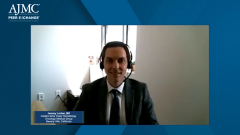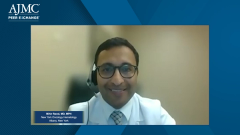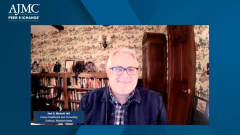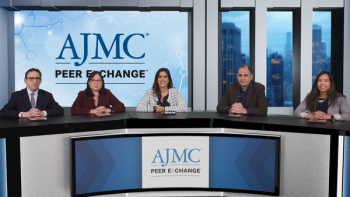
Implications for Using Complement Therapies for Cold Agglutinin Disease
Considerations regarding where newer, novel complement therapies will likely fit into the treatment landscape for patients with cold agglutinin disease.
Episodes in this series

Neil Minkoff, MD: Let me ask you, first on the clinical side. First, do you expect these new anticomplement therapies to change your management of this disease state, A or B, how you expect that to happen, and then further on, do you anticipate there being other changes in CAD [cold agglutinin disease] management over the next 3 to 5 years?
Jeremy Lorber, MD: I think the first question, they will have a major impact, or as major as you can in a very rare disease. For the patients for whom the rituximab-based therapies failed, these are therapies that have strong data that were prospectively studied specifically for CAD that we can offer to patients who may not do well with other existing treatments. I think this is the next 3 to 5 years, all these novel agents, complements targeting C1 and C3 are still not FDA approved, and I anticipate their approval will happen within the next few years. I think targeting other components of the complement cascade beyond C1 and C3 have not been as successful, targeting C5a with agents such as eculizumab were attempted and were logical, but that has not shown as much benefit. I think C1 and C3 targeting are the next few years.
Mihir Raval, MD, MPH: I think it is always a good idea to have options available because you will always have that one patient that first-line, second-line, third-line treatment fails and it's a rare disease. But you will always have that patient for whom having this option available makes it easier for the clinicians to use that with a stronger data to back it up when the other treatment fails. For now, I don't see that complicating my choice of treatment or the sequencing of treatment, and it empowers me to have that available in case if the conventional treatment I'm using fails.
Neil Minkoff, MD: What do my payer colleagues think?
Jeremy Gleeson, MD: I think we're hearing from our clinical experts that this treatment would likely be used after the standard treatment, the rituximab-based treatments, after lack of success or failure. I think from a payer perspective, it would make good sense to incorporate that into our approach. That seems to be the clinically appropriate thing, not to go with, as I said, potentially an FDA-approved drug, which may not be the best first choice.
Kevin Stephens Sr, MD, JD: I agree. I think that obviously, there are exceptions for every rule and there's a rule for every exception, and so with patients, sometimes they don't read the book, they don't follow the guidelines all the time. You have to be open to those difficult management cases. That's why we have our peer-to-peer process where physicians can talk to our medical directors so that we can come together and collaborate and work with them in the best interest of the patient.
Jeremy Gleeson, MD: I just have to make a comment about that peer-to-peer process, it doesn't always work as well as many of us would like it to. I think if it worked better, I think we'd be better off.
Neil Minkoff, MD: It's hard to argue with that one.
Transcript edited for clarity.
Newsletter
Stay ahead of policy, cost, and value—subscribe to AJMC for expert insights at the intersection of clinical care and health economics.










